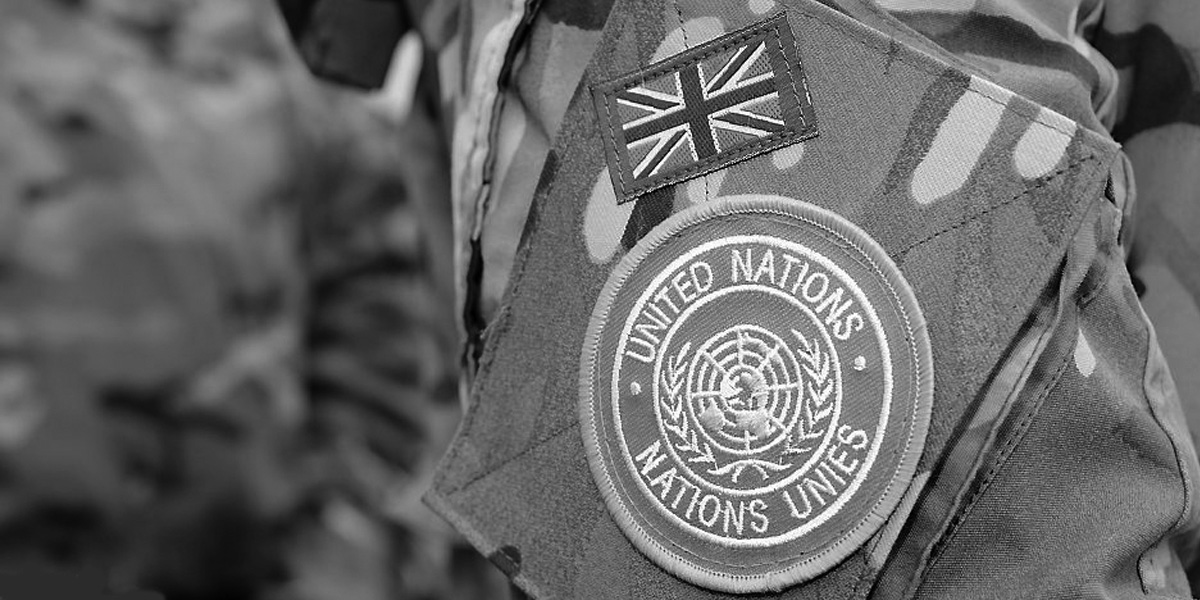How a new government should work with the Middle East
Present day Iraq, Syria, Lebanon, Jordan, Israel/Palestine and Saudi Arabia were part of the Turkish Empire for more than 400 years. Much of this area is desert, but it also includes the “cradle of civilization” along the great Tigris and...
Present day Iraq, Syria, Lebanon, Jordan, Israel/Palestine and Saudi Arabia were part of the Turkish Empire for more than 400 years. Much of this area is desert, but it also includes the “cradle of civilization” along the great Tigris and Euphrates rivers, the East coast of the Mediterranean Sea and the world’s most important sources of oil. The world’s monotheistic religions, Judaism, Christianity and Islam, started in the region, and it includes a wide range of ethnicities (Arabs, Kurds, Turkana, Somali, etc) and religions (different interpretations of Islam, including Sunni and Shiite but also Amalite and Druze, Coptic Christians, Jews and Bah’ai). The population is concentrated in cities along the Mediterranean coast and the great rivers, and in smaller towns and villages where there is water.
During the First World War the British, French and Russians secretly planned what they would do once the Turkish Empire collapsed. The consequences can still be seen not only in the existence of the state of Israel but also the borders between Iraq and Jordan, Syria and Saudi Arabia which ignore traditional boundaries in favour of long straight lines across deserts which reflect neither geographical features nor ethnic and religious settlement patterns. After the War they facilitated the coming to power of “Hashemite” leaders in all these countries, committed to Sunni Islam, and related to the House of Saud in Saudi Arabia, though Ibn Saud did not control the whole of that country till 1932. At that time it was one of the poorest countries in the world. But oil in large quantities was discovered in 1937, making Saudi Arabia, and especially about 2,000 members of its extended royal family, extremely rich. Much of this wealth was used to purchase arms, with the company British Aerospace taking the lead. Many members of the ruling family enjoyed a life of luxury and sometimes scandal, often abroad. But at home it supported extremely repressive policies. It also gave financial support to clerics, schools, and mosques, all over the world, and thereby spread the “Wahabi” interpretation of Islam. This rejects Shia Islam, and all forms of liberalism and underwrites austere and extreme forms of Moslem practice, including limiting contact with non-Muslims, and almost all Western culture, abstaining from alcohol, and practising jihad.
In Iran oil had been discovered much earlier and it was quickly exploited by companies from the UK, the US and France. When in 1953 the Americans and British feared that the Iranians would take over their assets, they orchestrated a coup which overthrew the government of prime minister Mohammad Mosaddegh. The resulting bad relationships with the USA continue to this day. The Shah ruled till 1979, when he was overthrown by the ayatollahs, preaching another version of fundamentalist Islam.
Only in Jordan has the Hashemite dynasty survived. In Syria, the military took effective control in 1948; they were replaced by the Baa’th Party in another military coup in 1962. In Iraq the Saudi-influenced regime was overthrown in 1958, and the Iraqi Baa’th Party seized power in 1963. The following years saw a series of offensives against the Kurds. Saddam Hussain took power in 1979. For eight years, with US support, he fought a very bloody war with Iran, ultimately without success. In 1990 he invaded Kuwait, leading to the first Iraq war. In 2003, in a frenzy of public pressure following the attack on the twin towers in New York (but without any clear attribution of blame for this on Saddam Hussain who had strongly opposed Al Qaeda) the US and Britain invaded Iraq a second time. By the time they left in 2011 the country was all but ungovernable. The Government of Nouri Al Maliki, elected in 2006, reflected the Shia majority in the country, bordering Iran. It failed to deal with the many problems in the Sunni-majority areas of the North, bordering Syria. In 2006 and 2007 it tolerated death squads against Sunni activists. Alienation of the Sunni communities was inevitable.
In 2011 the Arab Spring led to regime changes in Libya, Tunisia and Egypt, and a suppressed attempt at regime change in Kuwait. It also produced what became a brutal civil war in Syria in which at least a third of the population left the country, putting great pressure on its neighbours. There was a general breakdown in order. Bashir al Assad was most concerned by the offensives against him in the main cities. The so-called insurgency, led by what we now call Islamic States with links to Al-Qaeda and drawing on wahabi fundamentalism (including massacres of prisoners, beheadings of hostages and extremes of Sharia law) roused the Sunni communities in the rural areas. It then spread into Iraq where it not only acquired arms, but also local leadership; for one of the mistakes of the Americans had been to remove all Ba’athists from both the military and civil service. Many were Sunni, and unemployed, and only too willing to take up administration or military leadership for Islamic States. The Malaki administration appealed to the tribes in the North to take up arms and cleanse the area from Al Qaeda – but there were no rewards for this, or proper support, leaving them with little choice but to cooperate with Islamic States in some way.
What can the UK contribute?
How, then, given this huge complexity, and lengthy track record of failure, can an incoming UK government make constructive contributions?
It needs an understanding. Islam is not one block. Many places are still largely tribal societies, where local traditions and alliances are more important than religion. External threats, or interventions, can unite the most unlikely allies.
Arms easily get into the wrong hands. Arms sold to Muammar Gaddafi have ended up being used in Mali, Nigeria or Southern Sudan. Arms, including tanks and heavy artillery, that was used to equip an Iraqi national army fell into the hands of Islamic States. Arms sold to Kuwait have found their way all over the Middle East.
Democracy does not work well in a country split along racial or religious lines, where leaders from minorities can never expect to hold national power, though it may still lead to legitimation of the leadership of a majority group, and sometimes to a change of leader. It is more likely to succeed if there is a plurality of institutions and forms of leadership – regional decentralisation, local government with real powers, transparency, individual rights, property rights, an apolitical civil service and an independently minded judiciary. It also requires a perception that policies can change and life improve – so that there is an incentive to play by the rules of the game. None of these conditions apply in either Iraq or Syria today.
Borders without logic are unlikely to be maintained. This is already the case in Iraq and Syria, where de facto Kurdish states now provide the most stable administration, and resistance to Islamic States.
Those who oppose a government may not have the wherewithal to replace it. This turned out to be true of the Arab Spring leaders in Libya and Egypt, and the leaders of the Muslim Brotherhood who were unable to replace Hosni Mubarak, and it appears also to be the case with the “moderate Islamic resistance” in Syria, who do not have the organisation of a political party that has campaigned over a long period of time, or the equipment and training of a modern army.
A bombing campaign, however sophisticated, without an army on the ground, is very unlikely to bring peace. Leaders can be replaced. There will be constant replenishments of fighters on the ground, many of whom are sufficiently angry and sad to become suicide bombers. If large armies are driven under ground, there will still be campaigns based on roadside bombs and suicide attacks.
This is the reality in Syria now. It would be even more the case in Iran, if the Americans or Israelis tried to bomb the factories where nuclear materials are being refined. The technology they are using, and the scale of operation, appears to be appropriate to the development of weapons. The Iranians have anticipated a bombing campaign, and built their centrifuges deep inside mountains, and dispersed them. Bombing might delay the programme, but it would make it all but certain that ultimately it would be completed. The only situation in which this kind of military action might be justified would be if there was a compelling belief that Iran was about to use its nuclear weapons.
Iran wants to preserve its sovereignty and security. The case against it having nuclear weapons is not an absolute one, especially when Israel already has them. The stronger argument is that if Iran had nuclear weapons, Saudi Arabia, Turkey, Egypt and some of the Gulf states would insist on having them too. The risk of some of these weapons getting into unthinking hands, and ultimately being used, is too great to contemplate. So the case for an agreement with Iran is overwhelming – Iran reduces its nuclear programme in exchange for a removal of Western economic sanctions. Whether President Obama could get such a deal through Congress is another matter. But Iran has no wish to see militarised Sunni Muslim states on its borders and has the capacity to put soldiers on the ground in both Iraq and Syria, its long-term ally. So if American is going to oppose Islamic States it is more or less bound to be in dialogue with Iran.
Six specific proposals
There are some important conclusions for an incoming UK government:
- If one country intervenes in the affairs of another, as a minimum it needs a good understanding of the history and politics that have led to the existing situation, so that it can win hearts and minds with sensible administrative decisions, and show that it is better at meeting the challenges than the regime it seeks to replace.
- The UK should not intervene militarily without a clear endgame. There was no clear endgame when the US and UK invaded Iraq, and no clear endgame has been established for Syria. To find one may mean lower expectations. And a recognition of the wider forces at work in the world, and the limited ability of any single player to change the political geography of the whole Middle East.
- In particular, air raids without regime change, i.e. without armies on the ground, can in some situations gain time but they will be inconclusive, and counterproductive when civilians get killed and rouse the people affected to even greater opposition.
- The UK should be more critical of Saudi Arabia, and Kuwait, especially for their espousals of ideologies unacceptable in the modern world (such as cutting off limbs as a punishment, or espousing religious views which go well beyond anything found in the Quran and promote intolerance, limit the rights of women, or the rights of individuals to dress or think as they wish). We should also criticise them for selling arms to other countries in the area.
- We should try and define and recognise new boundaries. That will include a homeland for the Kurds. (It would also be a big early step, though it not discussed in this article, for a new government to recognise the Palestinian state, thereby putting pressure on Israel to treat it seriously and to allow its people free access to the outside world).
- Above all we should open channels and talk. To Iran about their nuclear ambitions and the risks they pose (to the whole world), but also about their objectives, military and other, in Syria and Iraq. To Islamic States because we need to accept that Shia rule for the large areas of Northern Iraq and much of Syria is no longer feasible, if it ever was. And of course to the other players, including Israel, Palestine and Saudi Arabia. Britain’s greatest strength over the years has been its diplomacy and its creation of new institutions – not its military might.
And, as an appendix, we should recognise that the vote in the House of Commons that prevented a premature bombing of Syria was a turning point in world history, and meant that it was possible to keep open the dialogue with Iran. The Labour party in particular should not be afraid to take the credit.
Marwan Darweish works at the Centre for Peace and Reconciliation Studies at Coventry University where his research interest is in peace processes, conflict transformation and nonviolence especially in the Middle East
Andrew Coulson is a retired lecturer in the School of Government and Society at Birmingham University and Chair of Birmingham Fabian Society
This essay is based on a presentation to Birmingham Fabian Society on 28 November 2014.


